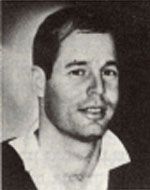Micha, son of Tula and Uri, was born on September 2, 1944, in Kibbutz Emunim – Nahalat Yehuda (today the Ein Hanatziv group) in the Beit She’an Valley, where his father served in the British army in North Africa, He studied at the Bnei Akiva Yeshiva in Kfar Haroeh and at the Mikveh Israel Agricultural School in Tel Aviv and in the School of Journalism of the ZOA House in Tel Aviv. He spent a period of time with his family in England, where his parents were sent on behalf of the Bnei Akiva youth movement. Micha was also active in the Bnei Akiva movement in Israel. He excelled in sports, especially in the fields of athletics and swimming, and was a loyal member of the “Elitzur” organization. He also did well in handicrafts, metals and wood. Micha was drafted into the IDF at the end of January 1963 and served in infantry and infantry units, where he took a platoon and infantry officers course, and served in a number of positions: the commander of the infantry division, the commander of the mortars and machine guns department, At the end of his regular service, he volunteered to serve for a year in the career army and was appointed commander of the “Modi’in” holding with the rank of lieutenant. After being discharged from regular service, Micha studied for a bachelor’s degree in economics at the Hebrew University and also studied philosophy and Arabic. He worked as the secretary of the Accident Prevention Council in the Jerusalem District, devoted himself to this function and worked tirelessly during the day and at night, in the field of fighting traffic accidents in the Jerusalem area. After completing his bachelor’s degree in economics, Micha worked as a budget supervisor for the Health Ministry, and later moved to the agricultural subsidies department. In the Economics Quarterly (August 1972), an article was published on the “Implications of the 1972 Subsidy Budget Proposal,” written by Israel Haim Arkin and Micha Gilad, who began his master’s degree in business administration at Tel Aviv University but only after his death Micha was a tall and handsome young man who, in all his many roles, turned out to be a serious and thoughtful person, with original ideas, diligent and dedicated to his job. In the fields of industry and agriculture, and in the short time he had worked for the paper, he excelled in a serious and thorough journalist At the end of 1973 he was called up for reserve duty, and was able to write comprehensive reports on industry and agriculture that year, which were published in the issue of the eve of Rosh Hashana in Ha’aretz in 1973. When the Yom Kippur War broke out, At the height of the Yom Kippur War on October 6, 1973, the Egyptians began a heavy bombardment and Micha went out with his commander to an observation post. In the shelling, the commander was killed and Micha took command. Later that day, the Egyptians attacked the stronghold of “stroking” large forces, and in the battle of the stronghold, Micha was wounded and killed. For his heroism and his work in this battle he was awarded the “Medal of Honor” and this is the certificate of honor: “Lieutenant Micha Gilad was a deputy commander in Maoz Lituf. The stronghold was attacked head-on by a large Egyptian force, while heavy shelling. The deputy commander, Micha Gilad, took command of the stronghold, and the deputy Micha Gilad z “l climbed onto the embankment to watch and propel the mortars towards the Egyptian force that crossed the canal. When the Egyptian force attacked again, it moved from position to position and fought wherever the enemy attacked it, thus giving a personal example to its peopleChile has excellent fitness and leadership. Lieutenant Micha Gilad was killed in a face-to-face battle against an enemy who tried to break into Ma’oz, and thus demonstrated exemplary self-sacrifice. ” His body was returned to Israel by the Egyptians, along with the bodies of 39 IDF soldiers who remained in enemy territory, and he was brought to eternal rest in the Mount Herzl cemetery, leaving behind his parents, brother and sister. Micha.
